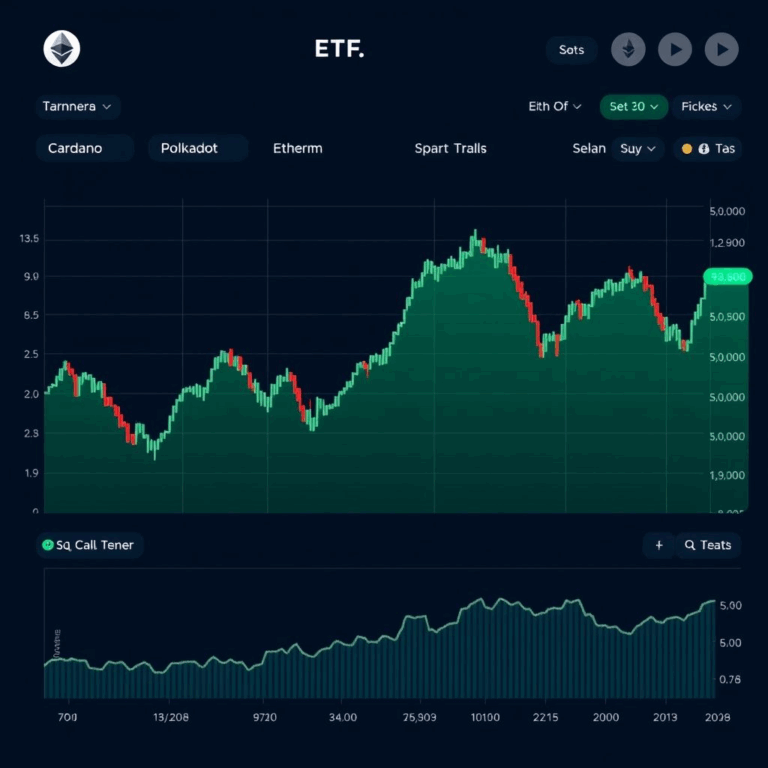Breaking news — quick summary
On Aug 14, 2025, TeraWulf announced a transformational co-location and high-performance compute deal (with Fluidstack) worth $3.7 billion — a transaction that includes Google backstopping $1.8 billion of lease obligations and receiving roughly 41 million TeraWulf shares (~8% stake). The announcement ignited a dramatic rally in TeraWulf shares, which jumped more than 50% intraday on the news.
What exactly was announced
TeraWulf will host Fluidstack’s AI cloud compute capacity at its Lake Mariner data center in Western New York, deploying an initial tranche of capacity and a roadmap to scale up to hundreds of megawatts over the coming years. Google’s involvement provides both financing support and strategic validation: it backstops Fluidstack’s lease obligations and takes equity in TeraWulf as part of the arrangement. The deal is structured as a multi-year, expandable commercial partnership expected to drive recurring revenue streams for TeraWulf and accelerate data-center utilization.
Why this matters for crypto and mining
TeraWulf, historically a Bitcoin mining and HPC company, is signaling diversification: repurposing or dual-using energy and compute infrastructure for high-value AI workloads as well as mining. This is significant for two reasons:
- Revenue diversification — Mining margins can be cyclical; hosting AI compute offers stable, longer-term revenues.
- Energy optimization — Data center capacity that can switch between workloads (mining, AI compute, HPC) helps operators maximize utilization and returns on capital.
Investors interpreted the move as a structural upgrade to TeraWulf’s business model, contributing to the stock rally.
Financial details and market reaction
The initial $3.7B figure covers a multi-phase deployment; with potential extensions the total contract value could reach $8.7B. Google’s backstop of $1.8B reduces commercial risk and underpins financing for buildout. Following the announcement, market commentary highlighted the strategic logic: large cloud and AI workloads need dense, cost-efficient compute and power — something mining operators with existing infrastructure can provide. TeraWulf shares surged more than 50% on the day of the announcement, reflecting investor enthusiasm for a pivot into AI hosting markets.
Strategic implications — for cloud, AI and crypto
- For cloud/AI providers: Working with infrastructure firms that already own power and cooling assets can reduce time to market for capacity expansion.
- For miners: The deal offers a playbook for diversification; miners with land, power contracts, and technical expertise can compete in adjacent markets.
- For capital markets: The structure—equity consideration for strategic partners, lease-back financing—shows creative deal-making to balance risk and growth financing.
Analyst and industry reaction
Analysts described the agreement as “transformational,” providing near-term revenue visibility and longer-term optionality in a growth market (AI compute). Commentators also flagged regulatory and execution risks: scaling data centers is capital intensive and requires operational excellence; any delays or cost overruns could temper enthusiasm. Still, Google’s explicit backing reduced perceived counterparty and financing risk, an important signal to public markets.
Risks and caveats
- Execution risk — Building and deploying MWs of capacity on schedule is complex.
- Technology risk — AI compute demand evolves quickly; vendors must keep hardware and software choices aligned with client needs.
- Crypto correlation — If TeraWulf’s mining business remains large, crypto volatile swings could still affect overall earnings if not fully offset by hosting revenues.
Outlook — what happens next
Market watchers will monitor:
- Timelines for the initial 40MW and subsequent phases;
- Google’s integration and whether further strategic cooperation or cloud bundling occurs;
- TeraWulf’s balance-sheet moves and how the company finances the expansions.
If TeraWulf successfully executes, the deal could become a template for how crypto-adjacent infrastructure assets monetize their power and real-estate advantages into AI/HPC markets.







